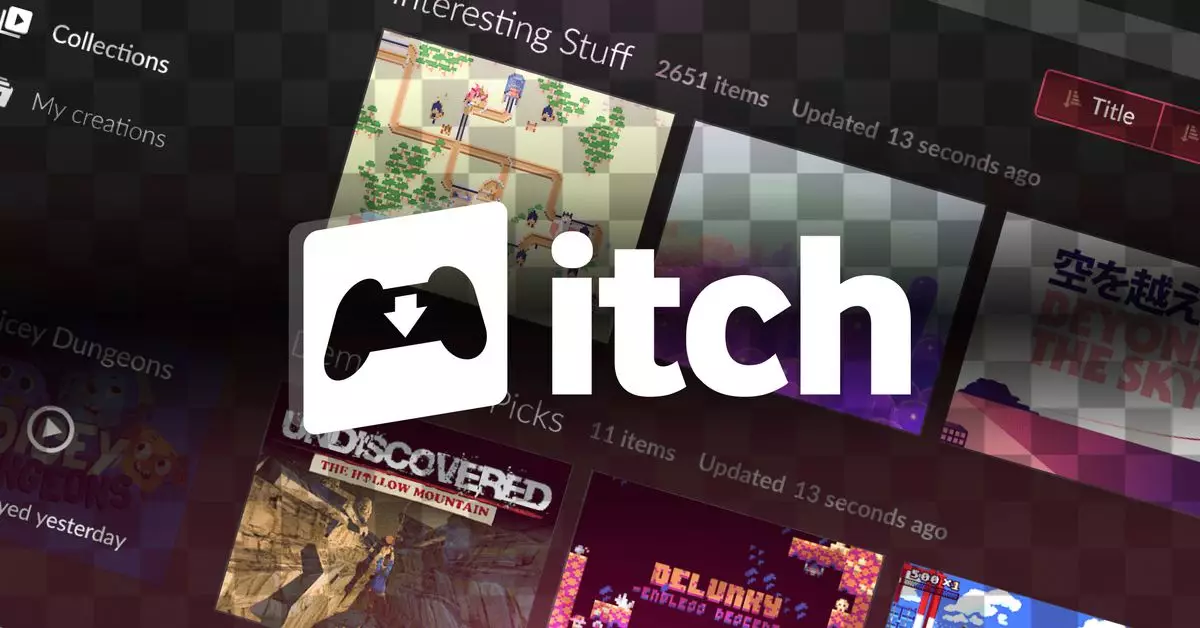In an unexpected turn of events, Itch.io, a prominent hub for indie game developers and enthusiasts, has found itself offline due to a fraudulent phishing report. While the backend servers continue to function normally, users are unable to access the platform because its domain has been redirected to unfamiliar IP addresses. This predicament casts a spotlight on the vulnerabilities within the digital landscape, especially for smaller platforms that rely on their online presence to connect creators with their audiences.
The indie marketplace has attributed this disruption to the practices of Funko, a company known for its pop culture collectibles. Itch.io pointed fingers at Funko’s adoption of an “AI-powered” brand protection tool named Brand Shield, which allegedly spurred the erroneous phishing report. The frustration expressed by Itch.io underscores a central issue in the tech industry: reliance on automated systems that can misinterpret data, causing collateral damage for innocent parties. Such incidents raise critical questions about the efficacy and oversight of automated monitoring systems employed by major companies.
The implications of this debacle are far-reaching. While the specific phishing report has been dismissed, Itch.io’s domain registrar, iwantmyname, opted to disable the domain, likely influenced by their own automated processes. This reaction illustrates a concerning trend in the tech ecosystem, where machines are often given the authority to make significant decisions without human intervention. Consequently, small businesses and creative platforms can suffer immensely from the outcomes of these “set it and forget it” solutions.
In a public statement, Itch.io expressed hopes that the issue could be resolved shortly. However, their statement hints at a deeper unease regarding automated security mechanisms within the industry. Their mention of potentially having to find a new domain underscores the fragility of their online existence, relying heavily on domain registration processes that are at the mercy of third-party actions and automated responses.
For users eager to access Itch.io in the meantime, a workaround does exist, albeit with caveats. By modifying the hosts file on their devices, users can temporarily connect to the platform through a specific IP address. However, this solution comes with its own hassles, as any changes made need to be reversed once the domain is restored, adding layers of complexity for a platform that prides itself on accessibility and ease of use.
The timing of this incident is particularly unfortunate, coming on the heels of Itch.io’s recent feature enabling users to integrate their profiles with Bluesky. Those who invested in custom URLs for their accounts are now facing technical errors, further exacerbating feelings of frustration among dedicated users. This incident serves as a cautionary tale for the tech industry, where the intersection of creativity and automation can lead to unanticipated challenges.
As the dust settles, Itch.io’s experience highlights vital lessons for digital platforms operating in contemporary landscapes. The reliance on automated brand protection tools, combined with the power exerted by larger corporations, creates a precarious situation for smaller entities. Moving forward, there is an urgent need for improved systems that incorporate human oversight and verification to safeguard against the fallout from erroneous reports. Itch.io remains hopeful for a swift resolution, allowing them to return to their core mission of supporting indie creators while deftly navigating the ever-evolving digital world.


Leave a Reply